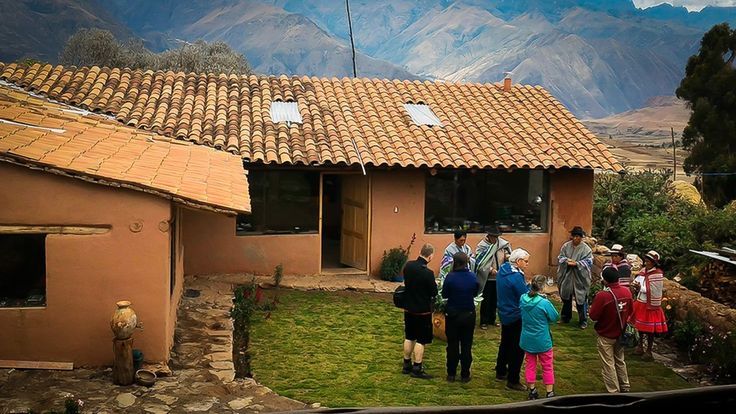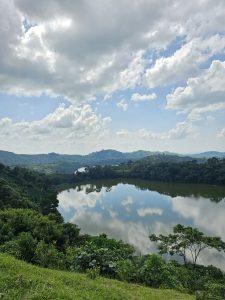Community Based Tourism Rwanda
Community-Based Tourism (CBT) in Rwanda is a growing trend that allows visitors to immerse themselves in the local culture, connect with the Rwandan people, and experience the country’s unique traditions, all while contributing directly to the well-being of rural communities. This type of tourism focuses on giving tourists authentic, hands-on experiences while promoting sustainable development and environmental conservation.
Here are some key elements of Community-Based Tourism in Rwanda:
1. Cultural Experiences with Local Communities
- Iby’Iwacu Cultural Village: Located near Volcanoes National Park, this is one of the most well-known CBT projects in Rwanda. Visitors can learn about traditional Rwandan practices, such as music, dance, and crafts. You can also experience activities like banana beer making, traditional healing methods, and participate in local ceremonies. The village is operated by former poachers who now serve as conservation advocates.
- Intore Dance and Traditional Crafts: Many CBT programs include traditional performances of Rwanda’s iconic Intore dance, where local communities showcase their cultural heritage through song, drumming, and dancing. Tourists can also learn traditional crafts like basket weaving, pottery, or even cow milking, which are part of everyday life in rural Rwanda.
2. Homestays with Local Families
- CBT programs often provide tourists the opportunity to stay with local families, offering a more personal and immersive experience. Guests live in traditional homes, eat home-cooked meals, and share in daily activities such as farming, cooking, or tending to livestock. This not only offers an intimate cultural exchange but also generates direct income for the host families.
- Red Rocks Initiatives for Sustainable Development in Musanze offers homestays and various cultural activities that allow tourists to engage with Rwandan rural life while supporting conservation efforts. Guests can participate in environmental conservation activities like tree planting and conservation farming, while learning about local customs.
3. Agritourism and Coffee/Tea Tours
- Rwandan Coffee and Tea Experiences: Rwanda is famous for its high-quality coffee and tea, and many CBT programs offer tours to coffee and tea plantations. Visitors can see the full process of how these products are cultivated, harvested, and processed, and even take part in the activities. Notable locations include Kinunu Coffee Washing Station along the shores of Lake Kivu, where visitors can experience coffee production from bean to cup.
- Agricultural Tours: Rwanda’s landscape is dominated by terraced fields and hillsides, where locals cultivate crops like bananas, maize, and beans. Visitors can join farmers in their daily activities, from planting to harvesting, providing insight into traditional agricultural techniques. This hands-on experience is a great way to learn about sustainable farming in Rwanda.
4. Wildlife Conservation and Ecotourism
- Mountain Gorilla Conservation: While Rwanda is famous for its gorilla trekking in Volcanoes National Park, CBT offers a different dimension to this experience. Community-led conservation projects around the park involve locals in protecting the endangered mountain gorillas while benefiting from the tourism revenue. Participating in community-led walks or conservation activities allows tourists to see how local people are integrated into preserving Rwanda’s unique biodiversity.
- Gisovu Village Tours: Near Nyungwe National Park, tourists can engage in community walks led by local guides who introduce them to the region’s biodiversity and conservation practices. Visitors learn about medicinal plants and the ways in which the local community coexists with the surrounding wildlife.
5. Supporting Local Handicrafts and Cooperatives
- Visitors can support local artisans by purchasing handmade products directly from the communities. Rwanda is known for its Imigongo Art (geometric, cow-dung-based paintings), basket weaving, and pottery. Many CBT projects encourage tourists to learn these skills themselves, which provides not only an educational experience but also helps sustain these traditions.
- Azizi Life is a cooperative in Rwanda that works with artisans from rural areas, promoting fair trade and empowering local women by helping them market their products to international tourists. Tourists can participate in workshops, learning to make traditional crafts alongside local artisans.
6. Nyungwe Cultural Experience
- Near Nyungwe Forest National Park, the Kitabi Cultural Village offers a CBT experience where tourists can learn about the local culture, including traditional dance, music, and storytelling, while staying in eco-friendly lodges. The village is located near one of the most biodiverse rainforests in Africa, adding the opportunity to explore both culture and nature.
7. Volunteering and Educational Tourism
- Some CBT projects also offer opportunities for tourists to give back to the community. For example, volunteering in local schools, health clinics, or agricultural projects provides a deeper connection to the people and allows visitors to contribute meaningfully to the development of the local area.
- Hope Shines is an organization that allows tourists to engage in volunteer programs focused on youth empowerment and education in Kigali, where visitors can spend time teaching, mentoring, or participating in community development projects.
Benefits of Community-Based Tourism in Rwanda:
- Economic Empowerment: CBT provides direct financial benefits to local communities, allowing them to improve their living standards through sustainable income sources.
- Cultural Preservation: By engaging with traditional practices and local knowledge, CBT helps to preserve Rwanda’s rich cultural heritage and ensures that future generations maintain a connection to their roots.
- Conservation: CBT often has an environmental focus, promoting the protection of wildlife and natural resources, with locals directly involved in conservation efforts. This helps protect Rwanda’s biodiversity, particularly in areas like national parks.
- Authentic Experience for Tourists: Tourists benefit from a deeper and more genuine interaction with Rwandan culture, gaining insights into the country’s history, traditions, and daily life that go beyond typical tourist experiences.
Conclusion
Community-Based Tourism in Rwanda provides an enriching and responsible way to experience the country. It allows travelers to connect with locals, support sustainable initiatives, and immerse themselves in Rwanda’s culture and natural beauty. Whether it’s engaging with local communities in the countryside or participating in conservation projects, CBT offers a unique perspective on Rwandan life that benefits both visitors and locals.




